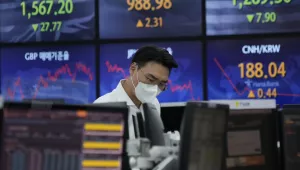The Queen of England during the summer asked economists why no one had predicted the credit crunch and recession. Paul Krugman points out that, inasmuch as economists can almost never predict the timing of recessions (and don’t claim to be able to), the real questions are worse. The real questions are, rather how macroeconomists (most of us) could have gotten it so wrong as to believe that:
- a severe recession like this was not even looming ahead as a danger, and
- a breakdown of many of the world’s most liquid financial markets, in New York and London, was not possible.
To anyone wondering about these questions, I recommend Krugman’s essay in the New York Times Sunday magazine, September 6: "How Did Economists Get it So Wrong?".
I would only add that he is modest in skipping over one point: during Japan’s lost decade of growth in the 1990s Paul forcefully drew from the Japanese experience the implication that a severe economic breakdown was, after all, possible in a modern industrialized economy -- a breakdown that both was reminiscent of the Great Depression and was outside the ken of modern macroeconomic theory. But macroeconomics went on as before. (Likewise with the stock market correction of 1987, the LTCM crisis of 1998, and the dotcom bust of 2000-01. I do think, however, that our field did a better job with the emerging market crises of 1994-2001, in part because it was considered permissible to argue that financial markets in this case were highly imperfect.)
Even the cartoons in the NYT article are good… except that I have never seen Olivier Blanchard in a double-breasted suit. But Robert Lucas definitely merits a place there: when given one page to defend orthodox economists regarding the crisis in a recent Economist essay, he actually thought it was a useful rebuttal to point out that critics are repeating arguments they have made before. And he also thought it was useful to explain: “The term 'efficient' as used here means that individuals use information in their own private interest. It has nothing to do with socially desirable pricing; people often confuse the two." -- as if it is not the latter question that the public is wondering about.
(For other economists’ reactions to the Krugman piece, see the National Journal site.)
Frankel, Jeffrey. “Why Did Economists Get it So Wrong? Krugman is Right.” September 14, 2009



